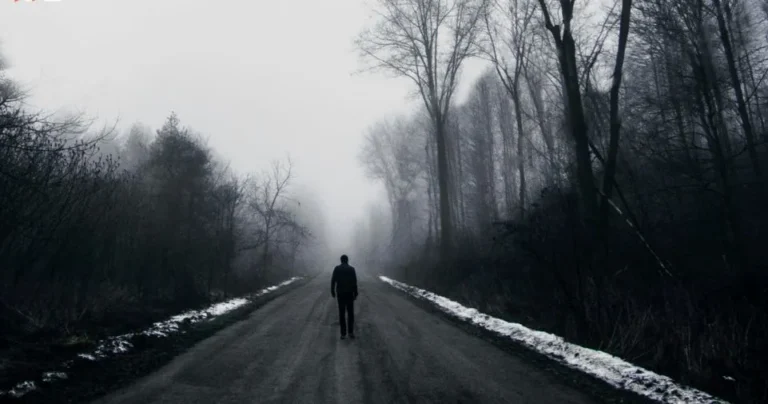Learning to be patient is essential in today’s fast-paced environment. Acquire the skill of observation by sitting back.
Not everything calls for a quick response. Examine the advantages of pausing, thinking, and making wiser choices for a more tranquil frame of mind.
Introduction
It’s easy to feel overburdened and under pressure to respond quickly to every circumstance that occurs in a society where everything happens at breakneck speed.
But learning to be patient and perceptive has great power. By practicing observational learning, we may improve our decision-making, develop more tranquil states of mind, and get insightful knowledge.
The Importance of Taking Time Off
The idea of taking a vacation may sound strange or even extravagant in our hyper connected age.
Nonetheless, it is necessary for maintaining our physical, mental, and emotional health. We may refuel, gain perspective, and approach our work with fresh vigour and clarity when we take a step back from our everyday routines.
Making time for oneself is essential for preserving equilibrium and avoiding burnout, whether it takes the form of a little break throughout the day or a longer trip.
The Power of Observation
Although it is sometimes underutilized, observation is a crucial talent for navigating life’s difficulties.
We may learn a great deal about ourselves and the society we live in by paying attention to our surrounds, interactions, and emotions.
Observing from a distance enables us to get information, evaluate events more precisely, and behave intelligently rather than responding impulsively to every stimulus.
Not Everything Needs an Immediate Reaction
People often feel under pressure to respond quickly to every scenario in our fast-paced environment.
But not every situation calls for a quick fix. We might avoid making snap judgements that we might come to regret by fighting the need to respond quickly.
Rather, we may react more thoughtfully and skillfully if we take a moment to ponder, think, and weigh our alternatives.
The Benefits of Reflection
A valuable technique for developing oneself on a personal level is reflection. We may learn a lot about ourselves and our behaviour by pausing to think back on our past experiences, ideas, and deeds.
We can see trends, comprehend our reasons, and grow from our errors when we reflect. It also offers a chance to recognize and appreciate our accomplishments, which helps us become more self-aware and self-assured.
Making Better Decisions
We run the risk of making errors or missing crucial information when we make judgements quickly without stopping to observe and think things through.
However, we may make better judgements that are consistent with our objectives and beliefs if we exercise patience and take the time to acquire facts, evaluate our alternatives, and think through any possible repercussions of our choices.
Making wise decisions that result in favourable consequences requires us to learn to trust our gut feelings while also depending on close observation and introspection.
Cultivating a Peaceful State of Mind
The desire to develop a more tranquil state of mind is fundamental to learning to step back and observe.
Finding moments of peace and tranquilly is crucial for our general well-being in a world full of diversions, pressures, and demands on our time and attention.
We may develop a stronger feeling of inner peace, tranquilly, and contentment by accepting patience, engaging in mindfulness exercises, and setting aside time to watch and think.
Incorporating Patience into Daily Life
It takes attention and discipline to incorporate patience into our everyday lives. It entails putting aside the need to respond hastily, pausing to watch and think, and being prepared to welcome pain and uncertainty.
It also entails establishing boundaries, putting self-care first, and scheduling time for pursuits that make us happy and fulfilled.
We may achieve better resilience, clarity, and happiness in many facets of our life by prioritizing patience.
Embracing Imperfection
Accepting imperfection and letting go of the urge for control are other aspects of learning to step back and watch.
It entails accepting the fact that we can’t always control or foresee how things will turn out in every circumstance.
We may live more freely, creatively, and joyfully if we let go of our attachment to certain results and embrace the process.
The Role of Gratitude
Another effective technique to develop patience and a calmer mindset is to practice thankfulness.
We may change our perspective and develop a deeper feeling of gratitude and satisfaction by concentrating on the benefits and richness in our life rather than what we lack or seek.
We may remain strong, grounded, and upbeat in the face of life’s obstacles by including thankfulness activities like writing, meditation, or just pausing to acknowledge our blessings.
Conclusion
Although it takes time and practice to become proficient at sitting back and observing, the benefits are well worth the effort. We may get insightful knowledge, make wiser choices, and create a more contented and tranquil existence by practicing patience. Thus, stop, inhale, and look about you for a bit. What you find out might surprise you.







